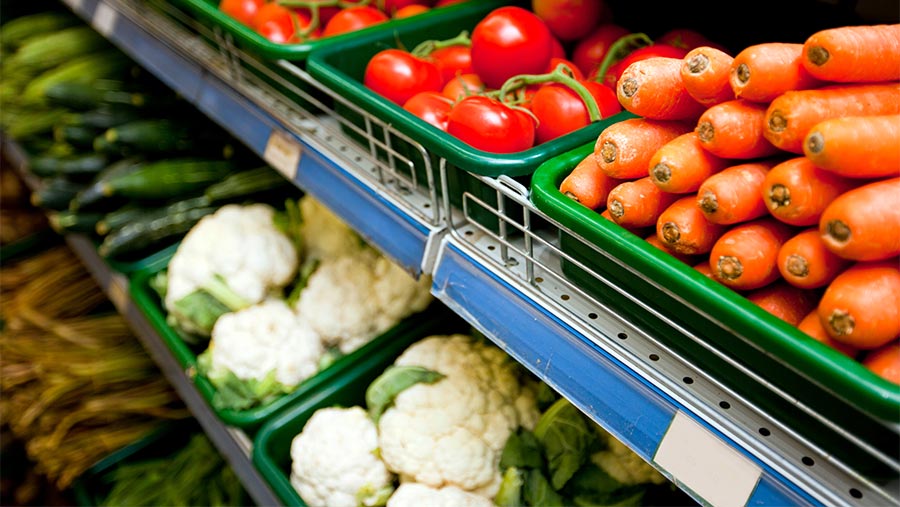Food price cap plans enrage retailers and farming sector
 © Moodboard/Adobe Stock
© Moodboard/Adobe Stock Discussions in government relating to the introduction of a voluntary price cap for some basic food items in UK supermarkets, has received widespread criticism by the food supply chain.
Industry bodies have called the proposal a “pointless gimmick” and fear it could put further pressure on producers.
The proposal came less than two weeks after the Farm to Fork Summit, hosted by prime minister Rishi Sunak, when representatives of the food industry met in Downing Street to discuss food security and pricing.
See also: Positive reaction to Rishi Sunak’s Food Summit talks
A government spokesman told Farmers Weekly that any scheme to help bring down food prices for consumers would be voluntary and at the retailers’ discretion.
The spokesman said: “We know the pressure households are under with rising costs and, while inflation is coming down, food prices remain stubbornly high. That’s why the prime minister and the chancellor have been meeting with the food sector to see what more can be done.”
However, NFU Scotland president Martin Kennedy said it was extremely worrying and disappointing to hear proposals for a voluntary price cap on food.
Mr Kennedy said: “From the perspective of farmers and crofters, although voluntary at retailer level, this has implications and the genuine fear that this proposal will only lead to one thing and that is further pressure on the primary producer.
“As a result of very tight margins, input costs for the likes of energy and fertiliser at very high levels, and extreme losses being made in some of our food commodities, there is no room for any more pressure, or we will continue to see a further contraction in our industry.”
Wider industry response
The British Retail Consortium (BRC) said a price cap would be meaningless and ineffective, and that the government should instead focus on cutting red tape.
BRC director of food and sustainability Andrew Opie said the proposal will not make a jot of difference to prices.
“High food prices are a direct result of the soaring cost of energy, transport and labour, as well as higher prices paid to food manufacturers and farmers.
“Yet despite this, the fiercely competitive grocery market in the UK has helped to keep British food among the most affordable of all the large European economies,” he said.
Institute of Economic Affairs fellow Julian Jessop said: “Caps on food prices are, at best, a pointless gimmick and, at worst, harmful to the very people they are supposed to help.”
Mr Jessop added that supermarkets may simply price to the cap and not cut prices further, even if falling costs allowed it.
